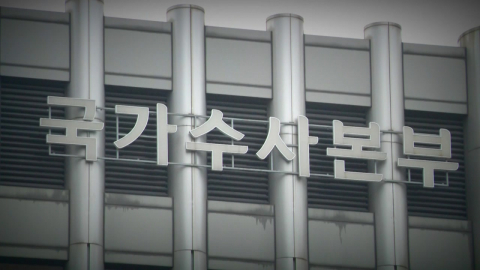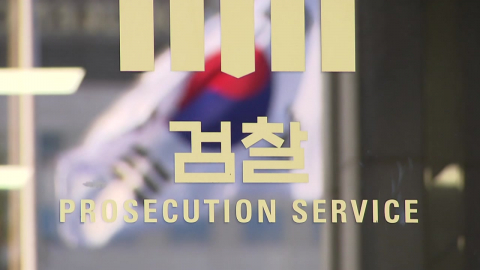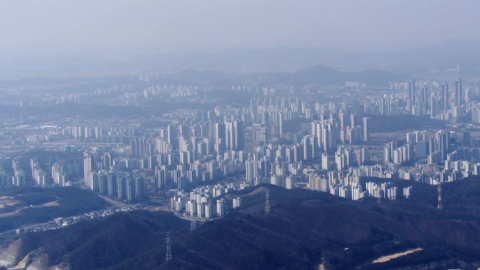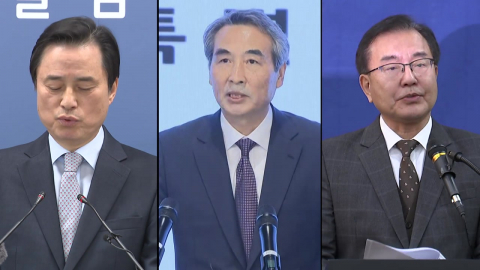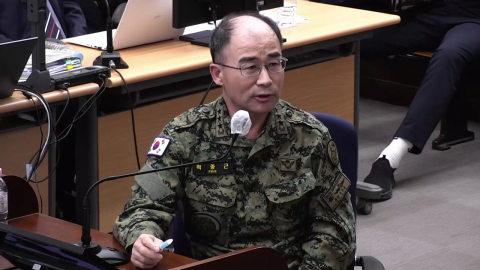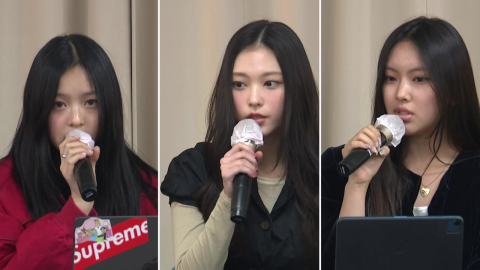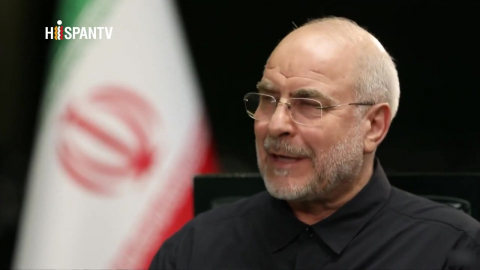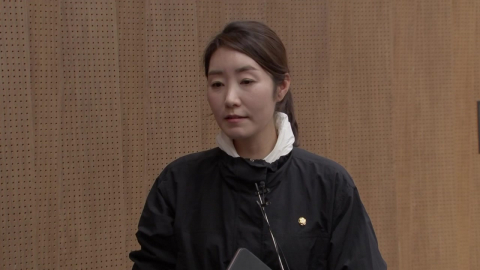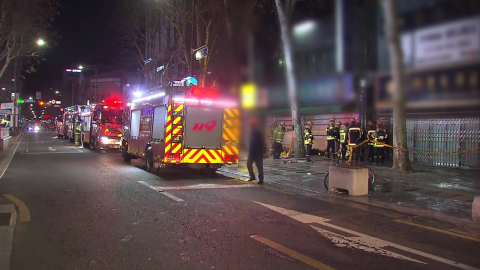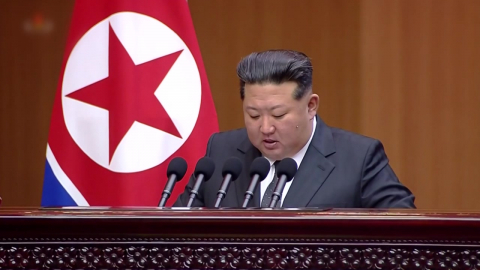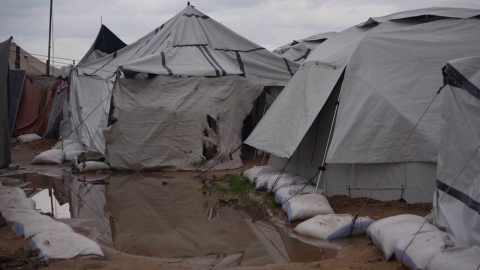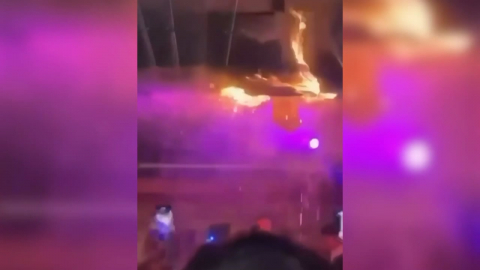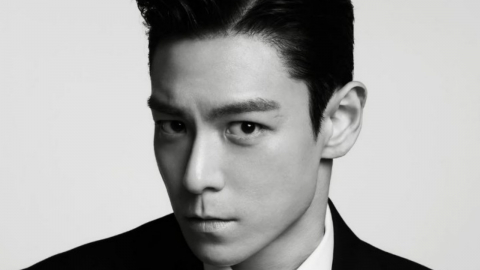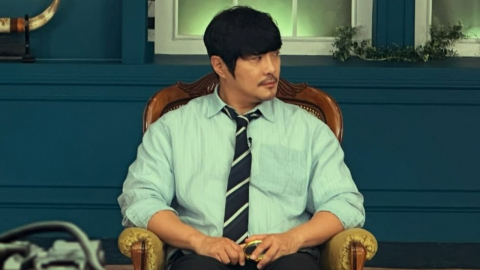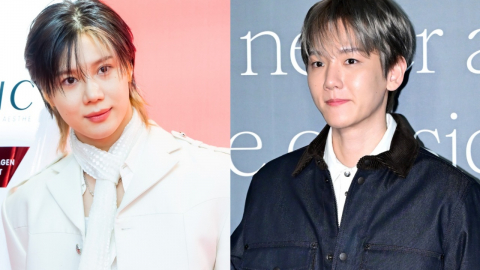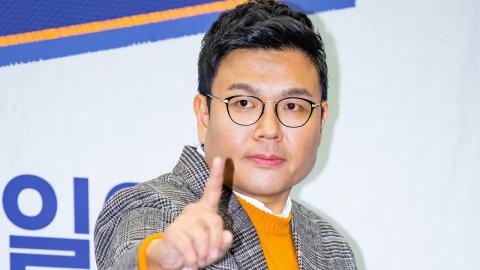-
’15명 사상’ 종각역 사고…’약물 양성’ 운전자 긴급체포재생
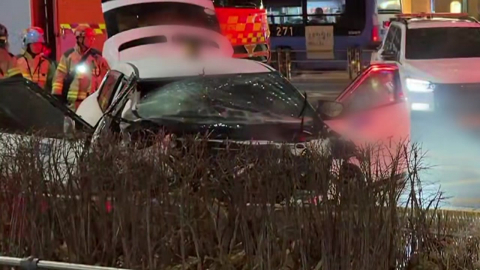
-
어제(2일) 퇴근 시간대 서울 종각역 인근에서 1명이 숨지고 14명이 다치는 교통사고가 났습니다. 사고를 낸 택시 기사를 상대로 시행된 약물 간이 검사에서 양성 반응이 나왔습니다. 자세한 내용 취재기자 연결해 알아봅니다. 김이영 기자, 이 운전자 긴급체포 됐다고요. [기자] 네, 경찰은 사상 사고를 낸 70대 기사 A 씨를 오늘 새벽 3시 15분쯤 교통사고처리 특례법상 치사상 혐의로 긴급체포했다고 밝혔습니다. A 씨를 상대로 한 약물 간이 검사 결과, 모르핀 성분이 검출됐는데요. 경찰은 감기약 등 처방 약일 가능성을 배제할 수는 없다면서도, 국립과학수사연구원에 정밀 검사를 의뢰할 계획이라고 설명했습니다. 앞서 어제(2일) 오후 6시 10분쯤 서울 종각역 인근을 달리던 전기차 택시가 보행자를 덮치고 다른 차량 두 대까지 연달아 들이받으면서 인명 사고가 났습니다. 경찰은 택시가 알 수 없는 이유로 급격히 속도를 높여 보행자와 신호등 기둥을 들이받은 뒤, 왼쪽으로 방향을 꺾고 신호를 기다리던 다른 승용차 두 대를 연달아 들이받은 것으로 파악했습니다. 이 과정에서 A 씨와 택시 승객 3명, 건널목 신호를 기다리던 보행자 6명을 포함해 피해 차량에 타고 있던 5명이 다쳤습니다. 피해 차량 탑승객이 추가 집계되면서 어제보다 피해자가 5명 늘었습니다. 보행자 가운데 크게 다친 40대 한국인 여성은 심폐소생술을 받으며 병원으로 옮겨졌지만 끝내 숨졌습니다. 부상자 중에는 인도네시아와 인도 국적의 외국인 4명도 포함됐는데, 생명에 지장이 있는 피해자는 없는 것으로 파악됐습니다. 당시 사고 현장에 있던 시민들은 무언가 터지는 것 같은 큰 소리가 났고 연기와 탄 냄새가 계속 났다며 처참했던 상황을 전했습니다. 경찰은 응급진료 직후 A 씨를 체포했는데, 신병을 확보한 A 씨를 상대로 구체적인 사고 경위를 조사할 방침입니다. 지금까지 사회부에서 YTN 김이영입니다. ※ ’당신의 제보가 뉴스가 됩니다’ [카카오톡] YTN 검색해 채널 추가 [전화] 02-398-8585 [메일] social@ytn.co.kr
-
김병기 금품수수도 경찰 수사…접수 의혹만 12건재생
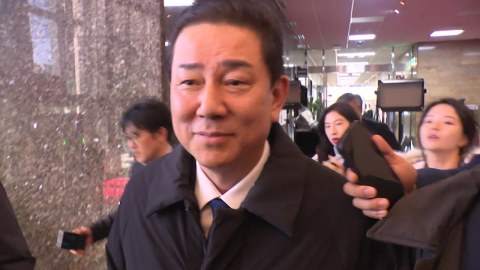
-
민주당 김병기 의원의 금품수수 의혹에 대한 일선 경찰서의 수사가 지지부진했다는 비판이 나온 가운데, 서울경찰청이 관련 고발을 접수해 수사에 착수했습니다. 이로써 경찰이 맡은 김병기 의원 관련 사건만 12건이 됐는데, 다음 주부터 참고인 조사 등이 이뤄질지 주목됩니다. 취재기자 연결합니다. 정현우 기자, 김병기 의원 금품수수 의혹 관련 수사 상황 전해주시죠. [기자] 네, 민주당 김병기 의원은 지난 2020년 총선 전 전직 동작구 의원 2명에게서 각각 금품 2천만 원과 천만 원을 전달받았다가 돌려줬다는 의혹이 불거진 상황입니다. 전직 동작구 의원 2명은 이러한 내용이 담긴 탄원서를 당시 민주당 대표실에 제출하려 했던 것으로 파악됐습니다. YTN 취재 결과, 해당 탄원서는 지난해 11월 서울 동작경찰서에 제출됐지만 경찰 수사는 2달 가까이 이뤄지지 않았던 것으로 파악됐는데요. 김병기 의원의 전직 보좌진이 탄원서를 자료로 내며 인지 수사를 의뢰했지만, 경찰은 탄원서 내용이 수사를 요구하는 것은 아닌 것으로 판단해 수사팀에 배당하지 않았다는 겁니다. 논란이 불거진 이후, 어제(2일) 서울경찰청으로 온라인 고발장이 새로 접수되면서 경찰이 김병기 의원 금품수수 의혹 수사에 착수하게 됐습니다. 서울경찰청은 어제 공지를 통해 엄정하게 수사하겠다고 강조했는데요. 월요일에는 시민단체도 고발을 예고하고 있는 만큼, 경찰은 탄원서 등 관련 자료를 검토하면서 소환조사 등 일정을 정리할 것으로 보입니다. [앵커] 이제 경찰에 접수된 김병기 의원 관련 사건만 12개가 된 건데, 경찰이 수사를 본격화할까요. [기자] 네, 금품수수 의혹 관련 고발이 추가 접수되면서 서울경찰청이 맡은 김병기 의원 관련 사건은 11개가 됐고, 동작경찰서가 수사하는 사건은 1개입니다. 차남 대학 편입에 개입했다는 의혹에 대한 수사만 동작경찰서가 맡는데, 김병기 의원 보좌진에 대한 참고인 조사는 이미 이뤄졌던 것으로 전해졌습니다. 보좌진이 김경 서울시의원에게서 1억 원을 전달받자 강선우 의원이 당시 공천관리위원회 간사였던 김병기 의원과 상의했다는 의혹과 관련한 고발인 조사 일정은 다음 주에 계속 예정돼 있습니다. 김병기·강선우 의원 두 명을 고발한 김태우 전 강서구청장이 오는 6일 오후 서울경찰청에 출석해 조사를 받습니다. 강선우 의원과 김경 서울시의원을 고발한 정의당 관계자도 오는 5일 오후 강서경찰서에서 조사를 받습니다. 다른 김병기 의원 관련 의혹과 관련해서도 서울청으로 수사 자료가 계속 넘어오는 중인 만큼, 다음 주 참고인 조사 일정 등이 잡힐 것으로 보입니다. 지금까지 사회부에서 YTN 정현우입니다. ※ ’당신의 제보가 뉴스가 됩니다’ [카카오톡] YTN 검색해 채널 추가 [전화] 02-398-8585 [메일] social@ytn.co.kr
-
이 대통령 "’하나의 중국’ 존중…한중 정상 매년 만나야"재생
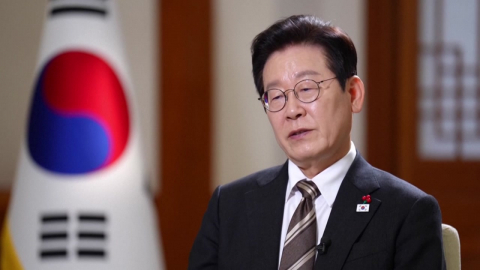
-
중국 국빈 방문을 앞둔 이재명 대통령이 타이완 문제와 관련해 ’하나의 중국’을 존중한다고 밝혔습니다. 이 대통령은 한중 관계가 매우 중요한 만큼 양국 정상이 1년에 한 번은 만나서 대화해야 한다고 강조했습니다. 이경아 기자가 보도합니다. [기자] 오는 4일부터 중국을 국빈방문하는 이재명 대통령이 중국 중앙TV와 대담했습니다. 이 자리에서 이 대통령은 중국의 최대 현안인 타이완 문제에 대해 ’하나의 중국’을 존중한다는 입장에 변함이 없다고 말했습니다. 중국 본토와 타이완, 홍콩, 마카오는 한 국가이며, 합법적 정부 역시 하나뿐이라는 중국 입장을 한국 정부는 1992년 수교 이후 지지해 왔습니다. 이 대통령은 또 지금의 국제정세 속에 양국 관계의 중요성을 강조했습니다. [이재명 / 대통령 : 최근에 국제정세가 매우 불안정하고 국가 간 갈등도 격화되고 있는데 한국과 중국과의 관계는 우리 입장에서는 매우 중요합니다. 한국과 중국은 역사적으로도 또 경제적으로도 지정학적으로도 정치적으로도 안보적으로도 매우 중요한 현안들을 가지고 있고…] 과거 ’안보는 미국, 경제는 중국’이란 논리가 있었지만, 대한민국의 전략적 자율성이 매우 중요하다는 인식도 드러냈습니다. 이 대통령은 "미국과의 안보 협력은 피할 수 없지만 중국과 충돌하는 것은 국익에 전혀 도움이 되지 않을 것"이라고 밝혔습니다. 따라서 양국이 최대한 서로에게 이익이 되는 것을 치열하게 찾아야 한다며, 1년에 한 번은 한중 정상이 만나 대화해야 한다고 강조했습니다. 인공지능 등 첨단 산업과 재생에너지 분야에서 협력을 기대한다고 밝힌 이 대통령은 양국 관계의 새로운 도약을 이루겠다는 의지도 드러냈습니다. [이재명 / 대통령 : 이번 방중을 통해서 그간에 있었던 오해들, 또는 갈등적 요소를 최소화 또는 없애고 한중 관계가 새로운 단계로 도약하고 발전해서 한국과 중국이 서로의 발전에 도움이 되는 관계로 확실하게 자리매김하게 하는 것이 목표라고 할 수 있겠습니다.] 지난해 11월 경주에서 처음 만난 시진핑 중국 국가주석에 대해 이 대통령은 "뛰어나고 시야가 넓은 지도자"라고 밝혔습니다. 당시 중국산 휴대전화에 대한 농담을 호쾌하게 받아줬다며 한국 국민이 시 주석의 인품에 대해 좋은 생각을 갖게 됐다고 추억을 떠올렸습니다. YTN 이경아입니다. 영상편집 : 양영운 ※ ’당신의 제보가 뉴스가 됩니다’ [카카오톡] YTN 검색해 채널 추가 [전화] 02-398-8585 [메일] social@ytn.co.kr



